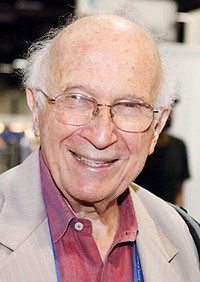Advertisement
Grab your lab coat. Let's get started
Welcome!
Welcome!
Create an account below to get 6 C&EN articles per month, receive newsletters and more - all free.
It seems this is your first time logging in online. Please enter the following information to continue.
As an ACS member you automatically get access to this site. All we need is few more details to create your reading experience.
Not you? Sign in with a different account.
Not you? Sign in with a different account.
ERROR 1
ERROR 1
ERROR 2
ERROR 2
ERROR 2
ERROR 2
ERROR 2
Password and Confirm password must match.
If you have an ACS member number, please enter it here so we can link this account to your membership. (optional)
ERROR 2
ACS values your privacy. By submitting your information, you are gaining access to C&EN and subscribing to our weekly newsletter. We use the information you provide to make your reading experience better, and we will never sell your data to third party members.
Policy
The Flip SIde Of A Breakthrough
April 15, 2013
| A version of this story appeared in
Volume 91, Issue 15
Rudy Baum’s book review “Transforming Warfare” was a sobering reminder of how scientific breakthroughs can have powerfully negative effects, such as greatly increasing the length and devastation of World War I (C&EN, Jan. 7, page 27). The book’s citation of a 1920 article by Amos A. Fries advocating chemical warfare raises doubts about whether technology really improves our lives.
Baum’s review illuminated an enigmatic quote from Albert Einstein: “Technological progress is like an axe in the hands of a pathological criminal” (abridged translation, from a letter written from Berlin in 1917 to his friend Heinrich Zangger). Einstein’s insight, which has puzzled scientists (for example, Asaph Aharoni and Federica Brandizzi in the Plant Journal, DOI: 10.1111/j.1365-313X.2012.04987.x), is arguably his most profound contribution to civilization—and especially relevant today.
William K. Wilson
Houston



Join the conversation
Contact the reporter
Submit a Letter to the Editor for publication
Engage with us on Twitter